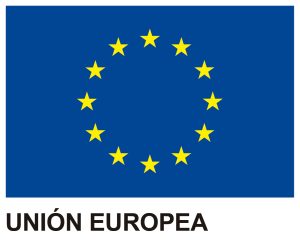I don’t know about you, but I think it would.
When I was a little girl I used to watch an animated series called ‘Once Upon a Time… Life’ which, in a very didactic way, taught us how the human body worked. It translated complex aspects of biology into simple words.
If you were lucky enough to have a good teacher at school, there was no way that you could not enjoy what in my time was called ‘Natural Sciences’ or what is the same as Biology 101, because it was easy to integrate the concepts and it was also easy to relate them to our daily life. For example, when these cartoons explained to you what happened in your body when you had a cut, how the platelets joined together to prevent the blood from coming out of the wound.
Analyzing the subjects taught in schools, it is easy to arrive at the conclusion that finances are not considered as an important subject, aren’t they? In my day they didn’t talk about finances and now, having children who have recently gone through school, I know they don’t talk about it either. No personal finances, no corporate finances, let alone market finances.
So, unless we received such training at home, we grew up with the idea that either finances is something not to worry about or that it is something that can only be mastered by a few who are not like the rest of us “mortals”.
And so we go, and so goes our economy.
Many people do not relate that investing in the stock market provides liquidity to companies so that they, in turn, invest (in new jobs, in machinery…) which makes the economy develop. This is something pretty basic and still not everyone knows about it.
I have long thought that the basis for a healthy society is based on education. And I’m not just talking about financial education.
I remember Sunday conversations with my son, the two of us talking about what could be done to improve the education system and, as we felt helpless, at the end my son said, “Mom, you should become a politician and do something to change it, even if it’s already late for me to see the changes, future kids will benefit from a new education”. But my son already knows that politics is not my thing.
And then I thought, could we do something, within our reach, to improve education? I have seen some interesting initiatives pass by. But none of them address the issue of financial education.
Could financial institutions play that role? Could they, in a didactic and playful way, impart knowledge?
The TV show Masterchef comes to mind. Regardless of whether we like the show or not, we all agree that Masterchef has popularized cooking. If I am minimally interested in cooking, I will watch the show and if I am more interested, I will buy a book – and of course it will be the one about the show-, if I also want to get further training I will sign up for the online school, and I will buy merchandising for my family or friends…
It’s very obvious business, isn’t it? There were not enough people interested in cooking before the show. Restaurants had problems finding good cooks but then Masterchef comes along and solves the problem. I know I’m simplifying it a lot… but wouldn’t this and the animated show example be useful to illustrate what financial institutions could do regarding financial education?
For me it is obvious, if a financial entity offers this training (let’s say the cartoons) and I educate myself through cartoons, in the future, whenever I need something from a financial entity, where will I go? To the one that offered me to watch cartoons when I was a child, right?
A few years ago, when the risk of financial institutions losing their role to Fintechs and GAFA was on the rise, everyone was talking about the need for financial institutions to highlight their advantages in order to emerge stronger from this threat.
I believe that if financial institutions played this educational role, they would be perceived by society in a very different way. Moreover, accusations like “the bank manager assigned me this product” would no longer be possible. Because an educated person is responsible for his or her decisions. The problem is when the person is not educated and we ask them to invest in products they do no not understand.
From my humble point of view, we would improve many aspects and it would be a win-win for both sides.
But surely there is some ingredient that I am missing, because if it were so easy the financial entities would have already done it, wouldn’t they?
Why is it that something that is so obvious at a business level is not being done?
I know it is not about a resource-shortage problem, so what is preventing financial entities from training their potential customers, current or future, on a financial level?


